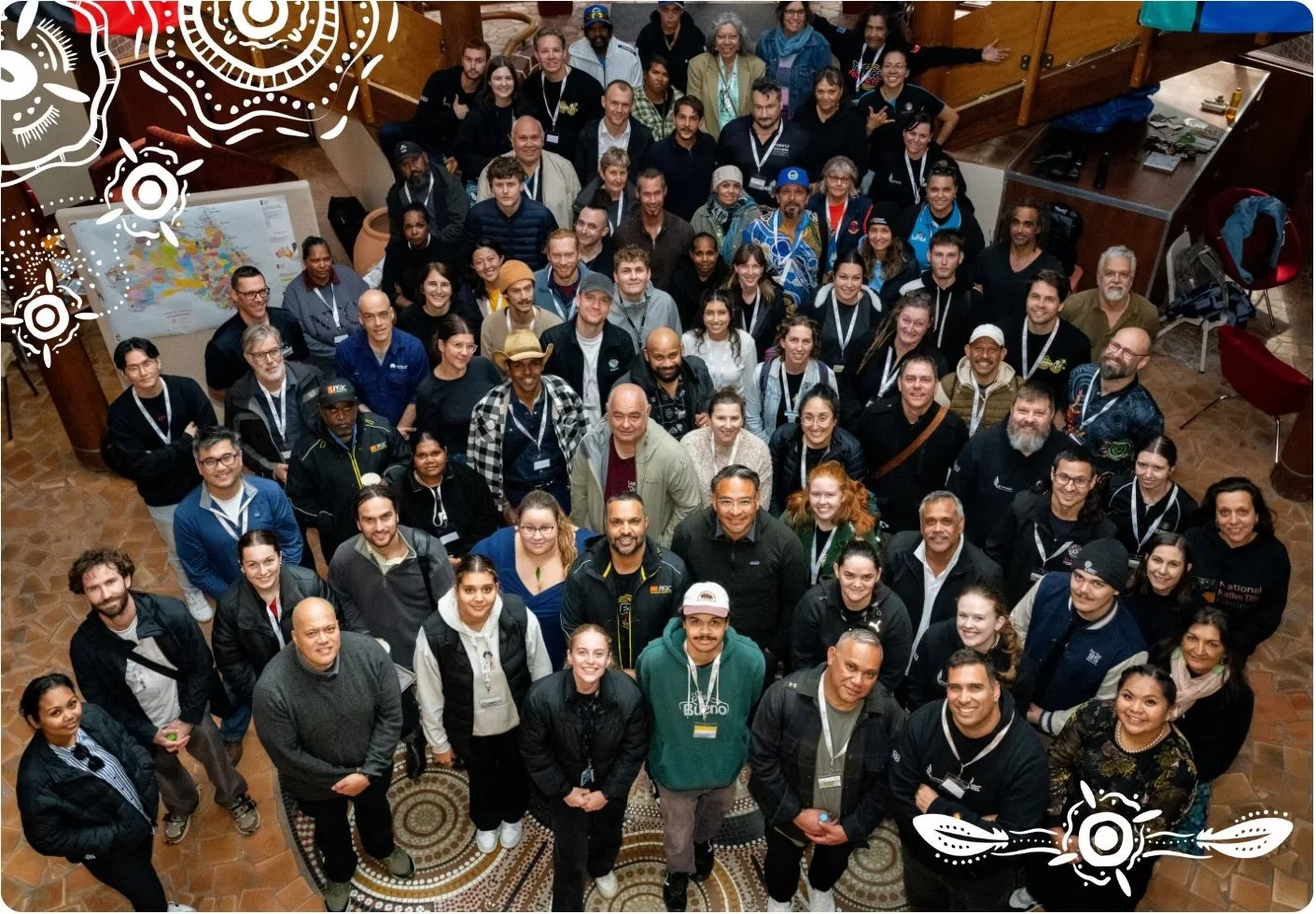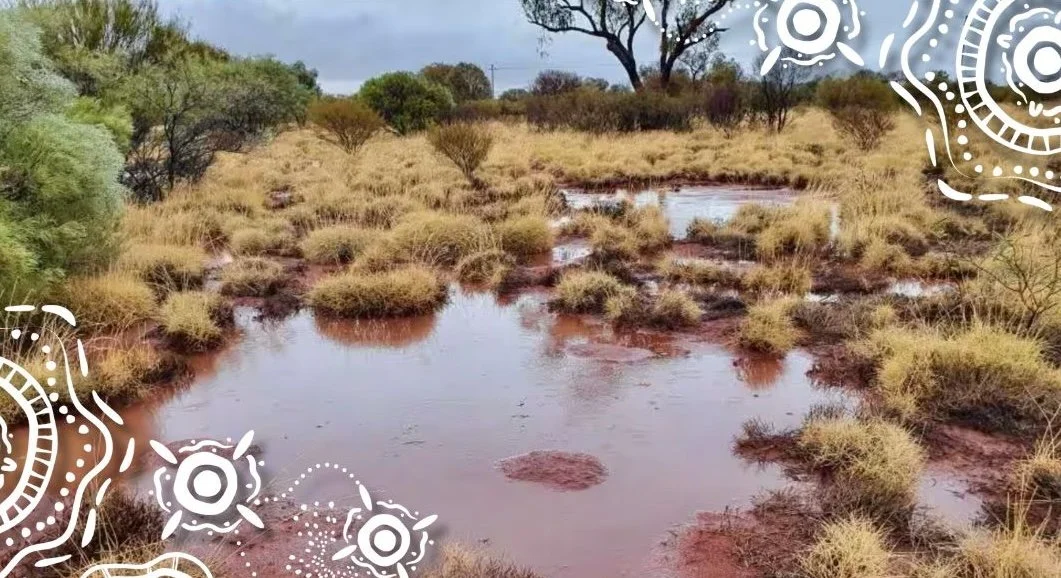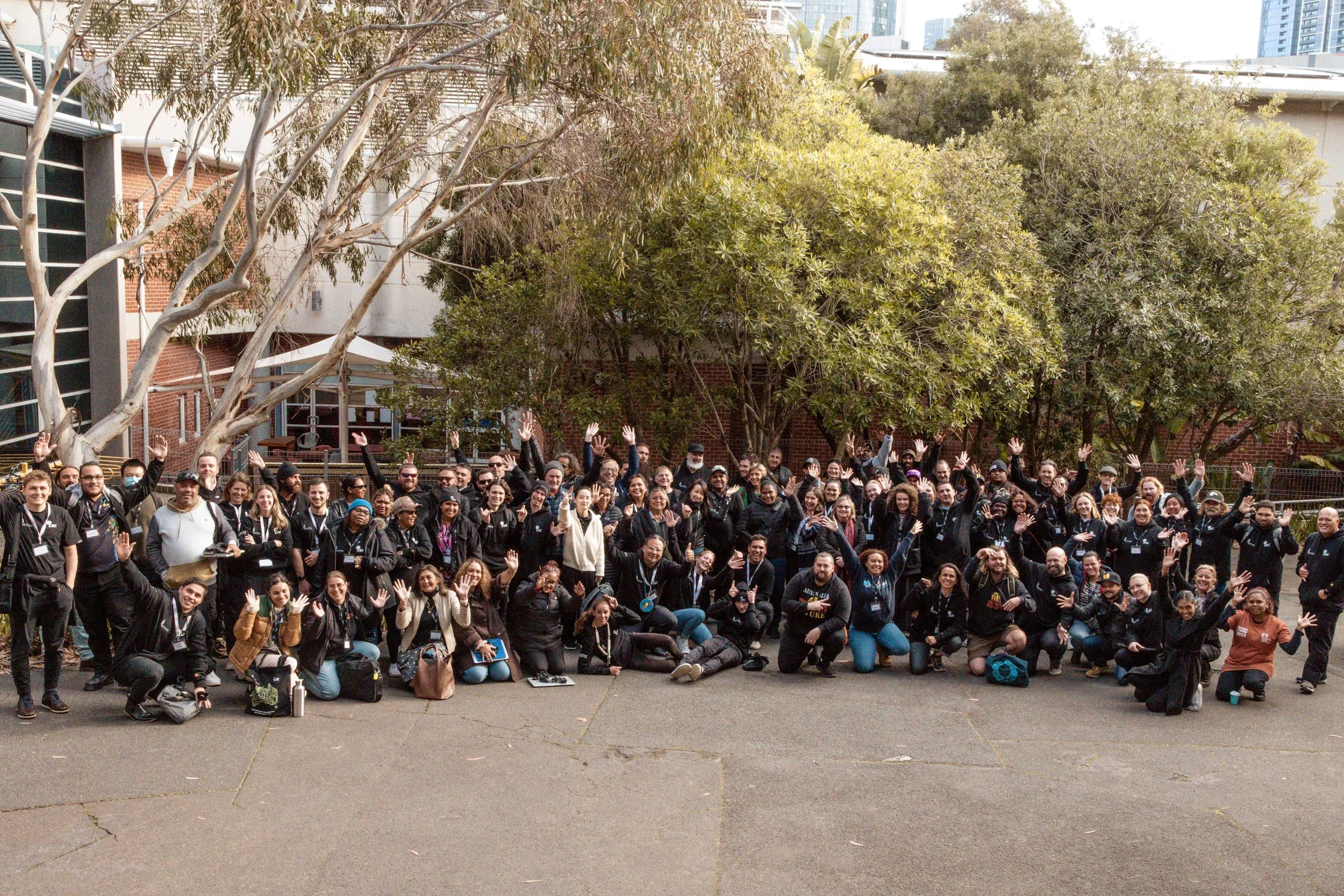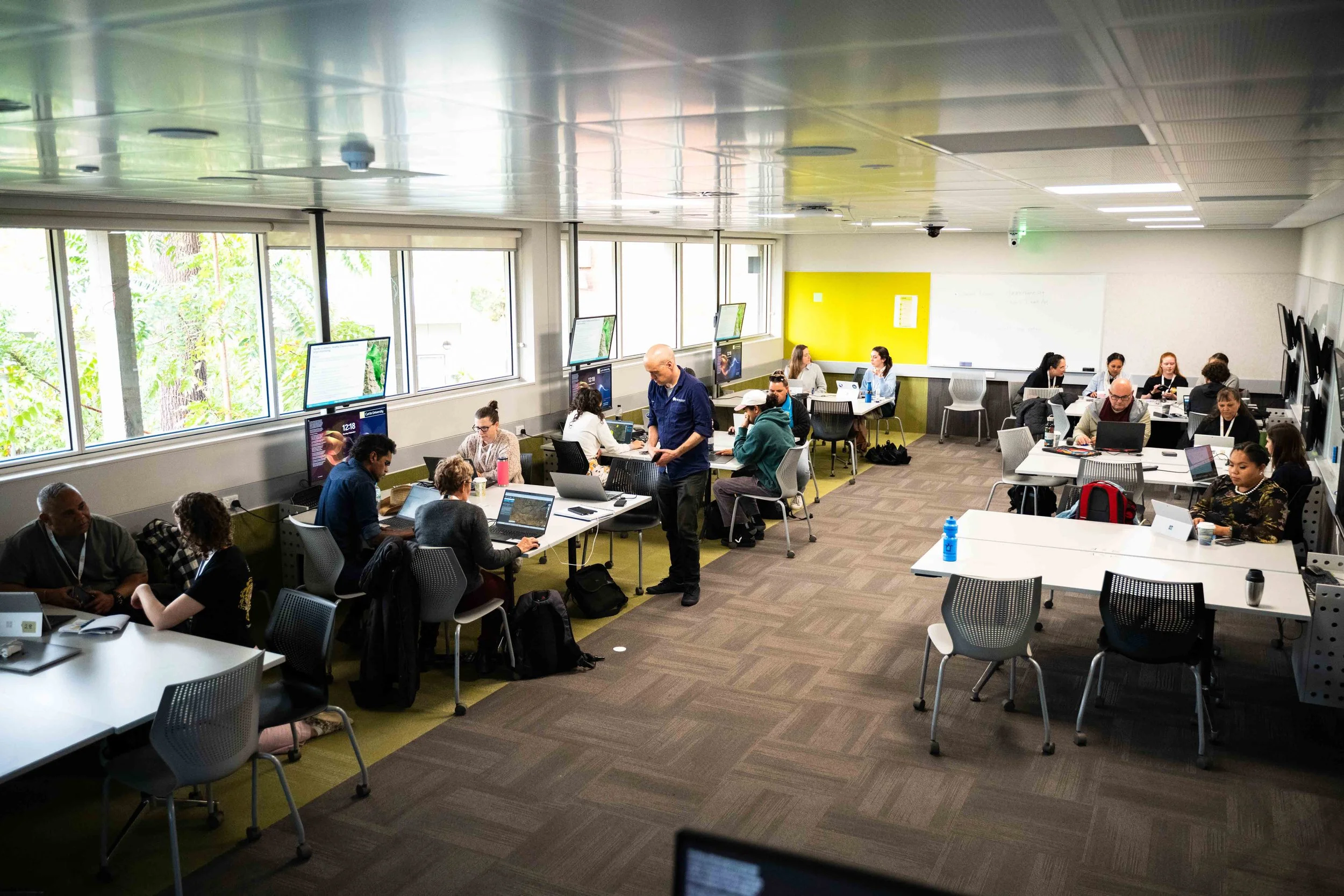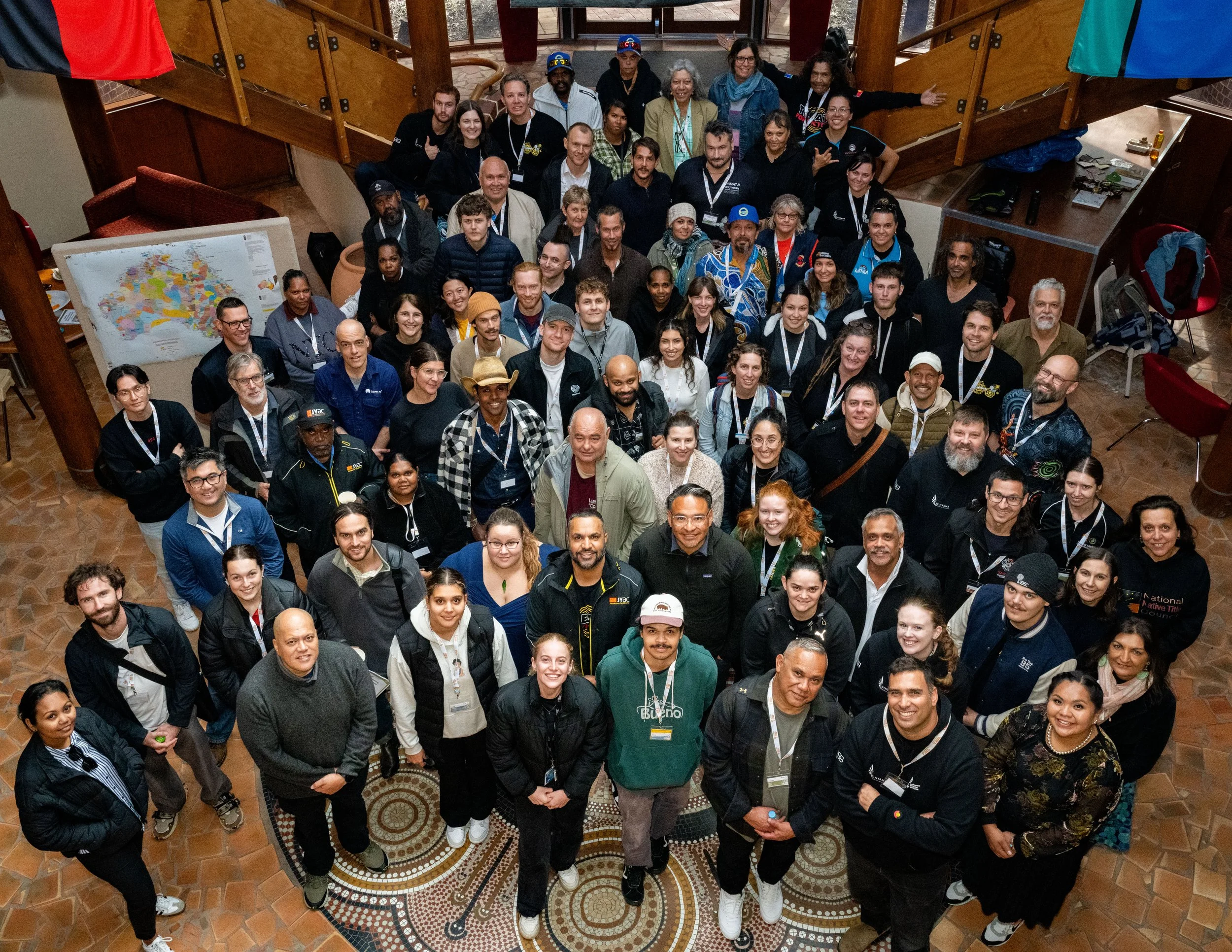
Newsroom
#WhyIMap: Inspiration at the Indigenous Mapping Workshop
Joel D’Antoine, GIS Technical Lead at Winyama, is a familiar face at our National Indigenous Mapping Workshops.
Returning as a trainer for 2025, Joel shares his passion for mapping and excitement for the upcoming event.
Shaping the Future of Indigenous Data Sovereignty
As we build on the foundations of Indigenous Data Sovereignty (IDS), we envision a future where our communities actively determine how our data is governed and applied across industries, ensuring the preservation of our histories, cultures and knowledge. Yet, in many ways, we are only just beginning this journey.
National Indigenous Mapping Workshop Comes to Brisbane
Winyama, in collaboration with the Indigenous Engagement Division of CQUniversity, is proud to announce the 5th annual National Indigenous Mapping Workshop (IMW), set to take place in Meanjin (Brisbane) from the 23-27th of June 2025.
Building Stronger Partnerships Through Indigenous Data Sovereignty
As we reflect on the significance of National Apology Day, understanding and respecting Indigenous Data Sovereignty becomes even more critical. It’s not only about acknowledging past wrongs, but also taking tangible steps towards reconciliation and respect in the way data is handled. Embracing IDS is a way forward–a commitment to honouring our Indigenous governance, empowering communities and ensuring that our data is used in ways that benefit us now and into the future.
National IMW 2023: A Call to our Indigenous Nations
The Wilin Centre for Indigenous Arts and Cultural Development, part of the Faculty of Fine Arts and Music at the University of Melbourne, works with Aboriginal and Torres Strait Islander communities to identify, recruit and support potential and practising Indigenous artists, as well as provides professional development opportunities for Australia’s First Nations peoples.
In 2023 they partnered with Winyama to host the National IMW. Learn more about the benefits of our partnership.
What is the Difference Between Cultural Mapping and Heritage Surveys?
Cultural mapping and heritage surveys may appear similar, but their purposes and methodologies are fundamentally different. Learn more in our latest blog.
Using a Digital Twin to Map Heritage for Yamatji Marlpa Aboriginal Corporation
YMAC is responsible for providing a range of professional services to groups of Traditional Owners of the Pilbara, Midwest and Gascoyne. One of those services is heritage mapping. With the need for heritage mapping rapidly increasing in Western Australia, YMAC contracted Winayma to help meet the needs of the Aboriginal communities they represent.
From Satellite to Solution: Driving Innovation with Earth Observation
Geoscience Australia is dedicated to advancing the sustainable management of Australia’s geological and geospatial resources. This commitment led to a partnership with Winyama, with Geoscience Australia providing financial support, training materials and subject matter experts for the Earth Observation (EO) sessions at the National IMW for the second consecutive year. Hear more about Geoscience Australia’s partnership with Winyama.
On-Site GIS Support Western Australia’s Public Transport Authority and METRONET
A partnership between METRONET and Winyama alleviated the need for the PTA to continuously outsource GIS professionals, closing the loop on a previously time-consuming process. This arrangement meant that Winyama staff were seconded out to support the Public Transport Authority’s project demand.
Why Indigenous Data Sovereignty Matters Now More Than Ever
For thousands of years, our Mob have guided the land through practices like controlled burns and seasonal migrations, ensuring environmental sustainability and cultural continuity. Today, Indigenous Data Sovereignty (IDS) continues this tradition in the digital realm, enabling communities to protect and nurture their knowledge as a resource for both current and future generations.
Staff Fulfilment Through the Indigenous Mapping Workshop
NGIS is a leading global geospatial consultancy with a 30-year track record of delivering innovative and impactful geospatial solutions. They joined Winyama to deliver another energetic National IMW. Hear from NGIS CEO, Paul Farrell on why they continue to partner with us.
3D Visualisation Tool Transforms Coongan Cultural Awareness Training
Coongan partnered with Winyama to transform their Cultural Awareness Training with an interactive 3D map of Nyiyaparli Country. The tool provides trainees with culturally approved stories, native title boundaries, and site-specific insights, fostering deeper understanding. Learn how this innovative solution is empowering Coongan and their community.
Partnerships to Cultivate Resilience: Indigenous Mapping Training in Western Australia
This year the Department of Primary Industries and Regional Development (DPIRD) supported Winyama’s Indigenous Mapping Workshop - Boorloo. Kate O’Connor, a Project Manager within the Aboriginal Economic Development (AED) team, shares with us why it was such a good strategic opportunity.
Indigenous Data Sovereignty Starts With a Deadly Data Strategy
Indigenous Data Sovereignty (IDS) is the right of Indigenous communities to control data about their land, people, and resources and determine who can access and apply this data. In a world where information is one of the most valuable resources, IDS is essential to Aboriginal and Torres Strait Islander communities pursuing self-determination and governance. If Indigenous data sovereignty is the goal, then a strong data strategy is the path to achieving it.
Empowering Indigenous Communities: Winyama's Transformative Mapping Workshop at Barrapunta
From September 30th to October 4th, the Winyama team—Joel D’Antoine, Grady Toomath, and Kass Boladeras—embarked on a mission in the Northern Territory, starting with a meeting in Darwin with Nina Westenraad. Their goal: to empower Indigenous communities by ensuring they control how their lands and cultural heritage are represented.
In Barrapunta (Emu Spring), the team conducted training to equip local rangers with skills in advanced mapping software, essential for managing their landscapes and addressing feral species. As the rangers learned to create maps reflecting their deep knowledge of the land, they reclaimed their narratives and strengthened their roles as environmental stewards. Through this initiative, Winyama aims to empower Indigenous communities to advocate for their rights and shape their futures with confidence.
River Bali’s GIS Journey
Dive into River Bali’s experience as a Winyama GIS intern! From drone mapping to Geographic Informations Systems (GIS), River’s path is filled with hands-on learning and real-world impact. Discover how his internship journey is shaping his career and empowering Indigenous communities through cultural mapping projects.
Mapping Milestones: Tradition and Technology - Training the Next Generation of Tech Warriors
Over 100 learners from across Australia gathered at Curtin University for our fourth National Indigenous Mapping Workshop (IMW).
#WhyIMap: Grady’s passion for sharing knowledge with Mob
We sat down with our IT Consultant and Chef Drone Pilot, Grady, to dig deeper into his journey of mapping, his dedication and passion for sharing knowledge, and becoming one of Winyama’s Chief Drone Pilots. Grady also reflects on how the Indigenous Mapping Workshop Australia is a place where Mob can learn to collect, host, visualise, share, and manage their data in the digital age and participate in the digital economy.
#WhyIMap: Kat's Journey with Winyama
We sat down with our lead Cloud Consultant, Kat, to explore her unexpected path into mapping, her exciting career journey, the inspirations that keep her passionate about mapping and her adventure to Winyama!
The Ngurra Portal
We're excited to announce our new service, the ‘Ngurra Portal’. This custom mapping service transforms access to native title data, simplifying complex information into user-friendly visualisations for our clients. By doing so, our clients can effortlessly view the locations of Indigenous land use agreements, the specifics of native title claims and resources on who to engage with regarding the location.



